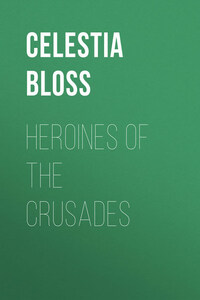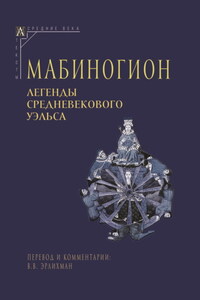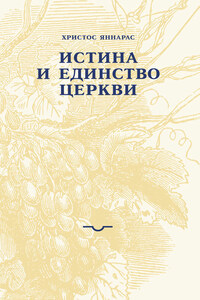To those whom it has been my privilege and pleasure to lead through the devious and darkened paths of the Past, to all who cordially receive the doctrine that actions and not faint desires for Excellence form the character, I address a few words by way of explanation and Preface.
Jerusalem, the capital of Palestine, whether glorious in the beauty of her first temple, and the excellent wisdom of her philosopher king, or veiled in the darkness of that fatal eclipse in which the solemn scenes of Calvary consummated her glory and shame, has occupied a position in the great drama of human events, more interesting and important than any other city on the globe.
But Jerusalem, in the gloom of that moral night which gathered over the nations after the fall of the Western Empire of the Romans, exerted a greater influence upon the minds of men than at any former period. The insulting Moslem felt a degree of veneration for the splendid ruins over which he walked with all a conqueror’s pride – the African anchorite left his solitary hermitage to weep upon Mount Olivet – the European adventurer wreathed his staff with the branching palm from her holy hills – the despairing Jew sat in sackcloth at her fallen gates, and even the mingled barbarians of the East united with the Christian to revere the spot where art achieved its proudest monument, and poetry found the theme of its sublimest song.
This natural reverence, exalted into piety by the decrees of the church, resulted necessarily in the practice of pilgrimage. Anxious, restless guilt, fled from the scene of its enormities to the sweet valleys where the Saviour whispered peace to his disciples; poetry sought inspiring visions on the Mount of Transfiguration; penitence lingered in the garden of Passion, and remorse expiated its crimes in weary vigils at the Holy Sepulchre.
At the dawn of the eleventh century, one sublime idea pervaded Christendom. The thousand years of the Apocalypse were supposed to be accomplished, and a general belief prevailed that on the Mount of Olives, whence the Son of God ascended in his chariot of cloud to heaven, he would reappear in all the pomp of his Second Advent. From every quarter of the Latin world the affrighted Christians, deserting their homes and kindred, crowded to the Holy Land – terror quickened devotion, curiosity stimulated enthusiasm. But insult and outrage awaited the pilgrims in Palestine, and in Jerusalem itself they encountered the scoffing taunts of idolatry and infidelity.
To free those holy courts from the polluting tread of the sandalled Paynim, to prepare a pure resting-place for the Son of Man, Superstition roused the martial spirit of the age, and enlisted chivalry under the banners of the cross.
Thus began the Crusades, those romantic expeditions which, combining religious fervor with military ardor, united the various nations of Europe from the shores of the Baltic to the Straits of Gibraltar, and from the banks of the Danube to the Bay of Biscay, in one common cause, and poured the mingled tide of fanatics, warriors and adventurers, upon the plains of Asia. For nearly two centuries the mightiest efforts and best blood of Christendom were wasted in the useless struggle, and it is computed that not less than six millions of people devoted their lives and fortunes to this desperate undertaking.
But though the Crusades are so important to the historian as involving the politics of all nations; to the philosopher as fraught with consequences affecting the happiness of succeeding generations; and to the scholar as commencing the era when Genius, brooding over the ruins of the Past, rose Phœnix-like from the ashes of Arabian splendor, and soaring in the clearer light of Christianity, scattered from her wing the dew of refinement upon the barbarians of the North; yet the general reader feels that his knowledge of them is so vague as to detract materially from his pleasure in allusions to them, and continually to force upon his mind a painful sense of ignorance upon points where he ought to be informed.
In some measure to supply a deficiency which common history cannot obviate, to make the period of the Crusades interesting, by giving to it the tangible thread of authentic narrative, these biographies of the “Heroines” who inspired the troubadour, animated the warrior, or in person “took the cross,” have, with much care and labor, been selected and compiled.
The era opens about the time of the Conquest, when William I., unquestionably the greatest ruler of his time, returns in triumph to Normandy. No two writers agreeing as to the age of his children, I have arranged them as best suited my purpose, making Cicely the eldest, the betrothed of Harold; and the second daughter, Agatha, the bride of Earl Edwin; and Adela, whose ambitious character is well authenticated, the Heroine of the First Crusade.
The character and superstitions of the Saxons, with their love of “legendary lore,” I have endeavored to embody in the early life of Maude, while I have endeavored to make her riper years illustrate the principles and piety of a teacher to whom you are all much attached.








